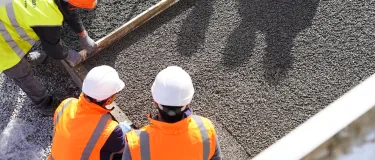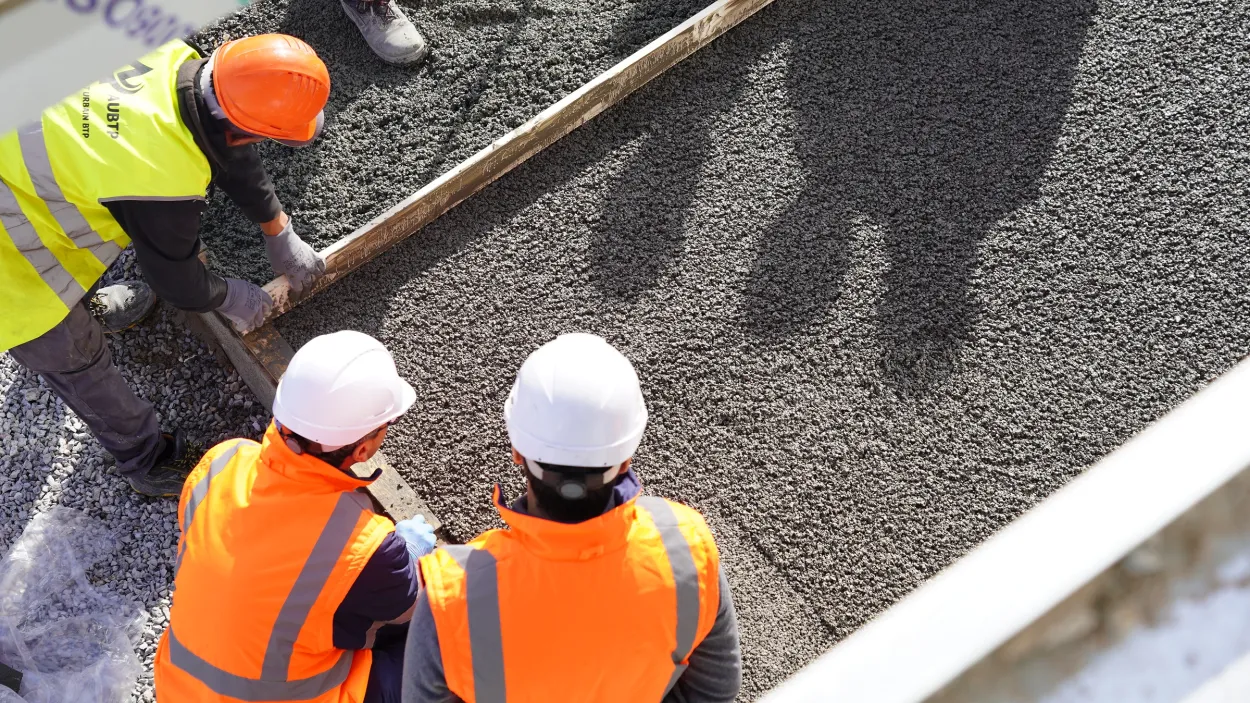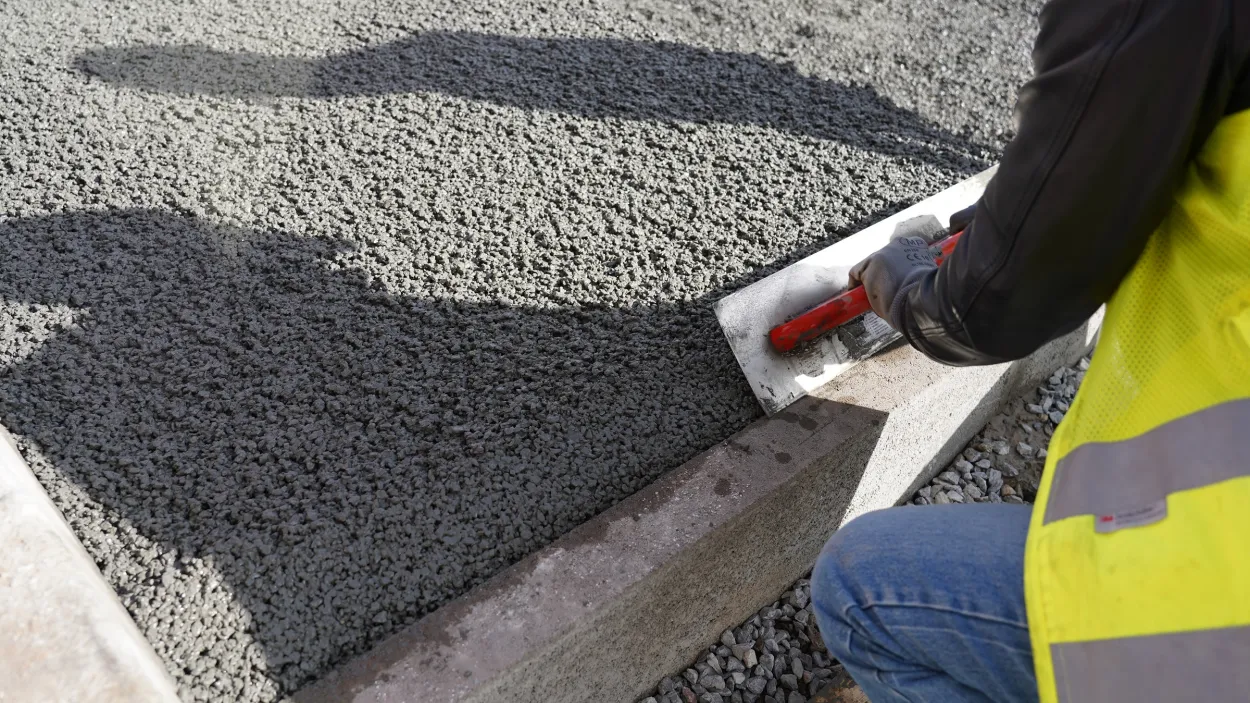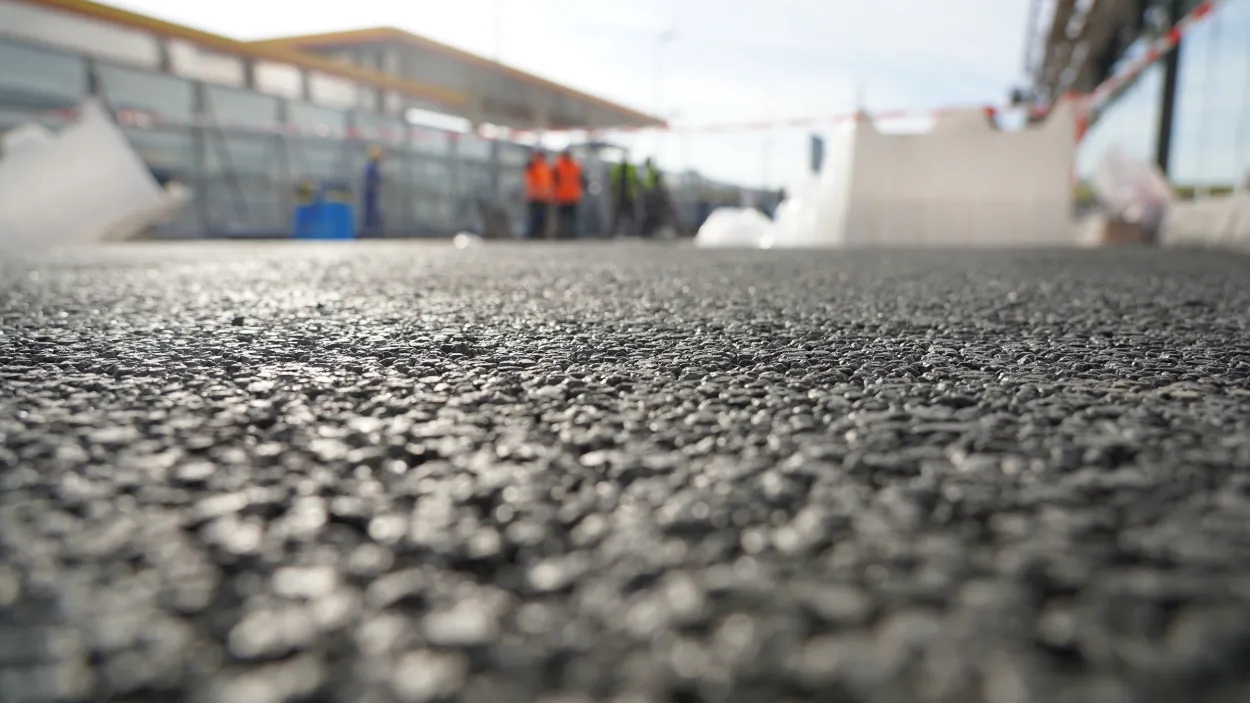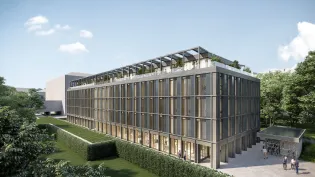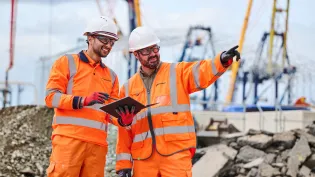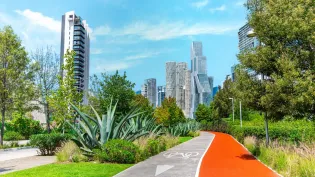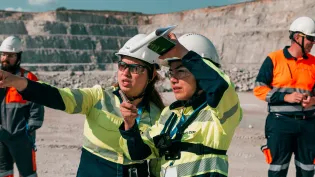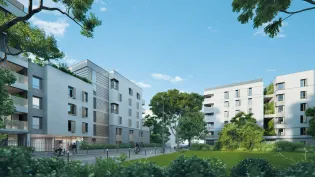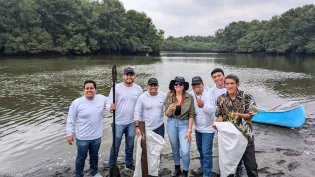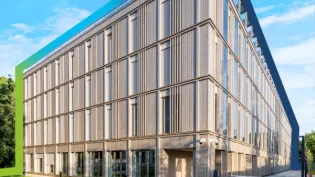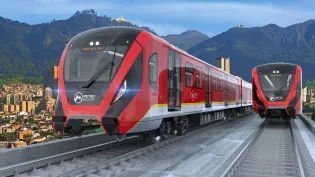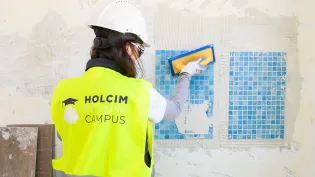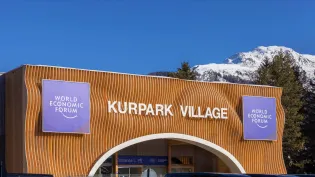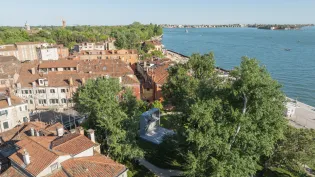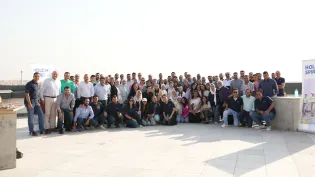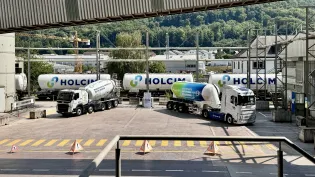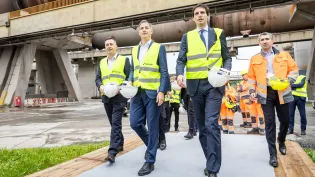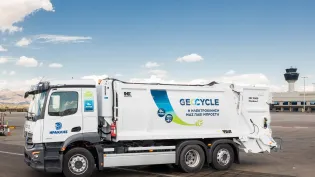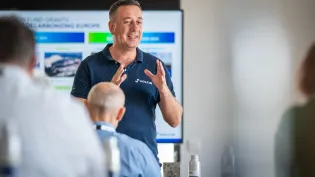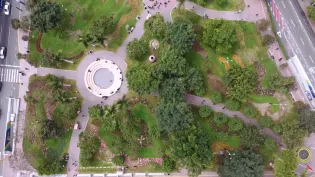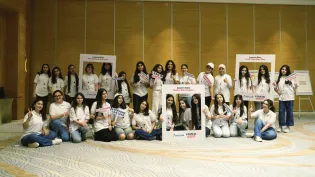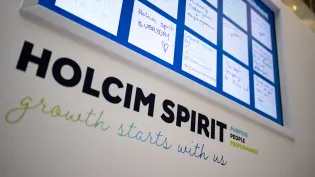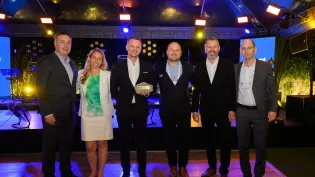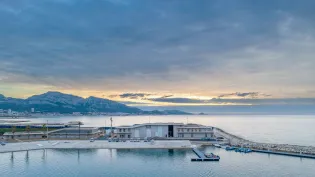A Breath of Fresh Air from Hydromedia
Imagine the city of the future, with state-of-the-art buildings, infrastructure and industry built sustainably with people’s social and economic wellbeing top of mind. Part of that wellbeing involves ensuring climate resilience, and Holcim’s new Hydromedia concrete with air-enhancing technology is just one of our building solutions that can make a real difference.
Our climate is changing and with urban populations growing, it is essential that our homes, schools and other vital infrastructure are resilient enough to cope with challenges like rising heat, heavier rainfall and pollution in cities.
“Our teams at the Holcim Innovation Center are reimagining concrete to help cities breathe easier and stay cooler,” says Isabelle Dubois-Brugger, Global R&D Project Manager in charge of climate resilience topics at the Holcim Innovation Center.
That’s how Hydromedia with air-enhancing technology was born — a permeable concrete that not only manages stormwater but also cleans the air we breathe.
When it rains in the city, streets can quickly turn into streams. Hydromedia changes that. Its porous surface absorbs an average of 500-600 liters of water per square meter every minute.
The rain doesn’t pool on the surface. Instead, it flows through the concrete and into the soil below, replenishing groundwater and feeding the roots of nearby trees and plants.
This natural water cycle supports vegetation that cools the surrounding air through evapotranspiration—the release of water vapor from plants—reducing the urban heat island effect and making outdoor spaces more livable even in extreme heat.
“Now, Hydromedia goes a step further,” Isabelle says. “With new air-enhancing technology, it can remove up to 70% of harmful air pollutants in its immediate surroundings, turning busy urban hotspots into healthier environments.”
How Hydromedia cleans the air
Hydromedia with air-enhancing technology is designed to capture and neutralize pollutants from traffic, one of the biggest challenges for urban air quality. Here’s how it works:
- Capturing pollutants: Thanks to patented activated charcoal additives, the concrete surface can trap gases such as nitrogen oxides from exhaust fumes and volatile organic compounds (VOCs) from fuels and oils — pollutants that contribute to smog and respiratory problems.
- Breaking them down: Once captured, these pollutants react with the minerals in the concrete and transform into harmless salts.
- Washing away safely: Over time, rainwater washes these salts through Hydromedia’s porous structure, carrying them into the soil where they no longer pose a risk, a process called leaching.
Improving air quality in Morocco
This innovation is already making a difference. When Vivo Energy renovated Morocco’s busiest highway rest station, they partnered with Holcim to pave the parking area with Hydromedia concrete with air enhancing technology. The result: rainwater is recycled to maintain greenery, and air quality is improved for thousands of daily visitors.
To ensure measurable impact, Holcim has installed sensors to track reductions in pollution levels on site. The project also integrated ECOCycle® technology to recycle construction demolition materials (CDM) from the old station into a new circular cement.
Together, these Holcim building solutions helped Vivo Energy meet their ambitious sustainability goals for this flagship project. The station is the first site in Africa to achieve the “Excellent” label from HQE, a coveted sustainable building certification.
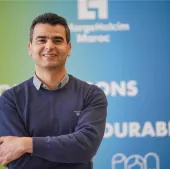
“This project reflects our commitment to sustainable urban development and addresses the challenges of resilient cities. With Hydromedia, we are efficiently managing rainwater and now also improving air quality, setting a new standard for eco-friendly infrastructure.”
Vivo Energy collaborated on this project from start to finish with the Sustainable Construction Lab, Holcim’s 4,000 m² regional R&D center near Casablanca, Morocco.
“As we execute our NextGen Growth 2030, we're creating superior value for our customers across the built environment,” Isabelle says. “Working closely with them, we innovate to find tailor-made solutions – from project design and engineering through to project execution.”
Hydromedia is more than just concrete. It’s a step toward building the cities of the future that are more sustainable, resilient and biodiverse — places where infrastructure works in harmony with nature to ensure quality of life.



